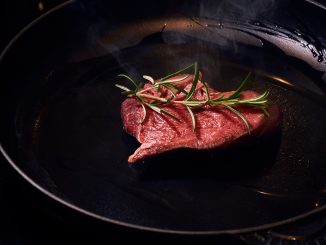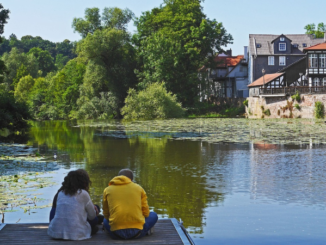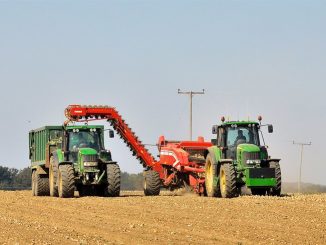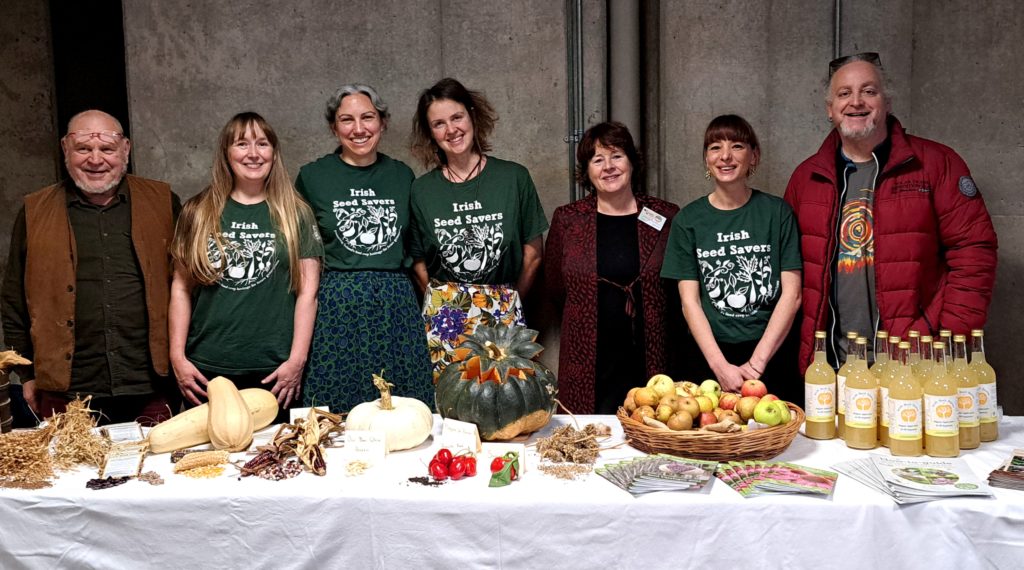
The importance of agrobiodiversity, of food policy councils and the risks of the proposed European seed marketing proposal emerged as key themes from a vibrant event held in Dublin last week.
The 12th Forum of the European Coordination of Let’s Liberate Diversity, held in the Irish capital, drew over 100 participants from all over Europe and beyond, including Minister of State at the Irish Department of Agriculture, Pippa Hackett.
The Minister, who had recently returned from attending World Food Forum at the UN FAO’s headquarters in Rome, spoke of the importance of short supply chains, of agrobiodiversity, and of alternatives to huge food corporations controlling so much of everything from seeds to inputs.
Sieh dir diesen Beitrag auf Instagram an
Hackett, who is also an organic farmer from Offaly in the Irish midlands, spoke of the importance “effective planning and management of genetic resources in agriculture is integral to addressing some of the key challenges we face as a society” stating that “the availability of quality and diverse seed will play an increasingly important role in mitigating and adapting to the impacts of climate change, and in achieving that all important food security into the future.”
Elaine Bradley, Executive Director at Irish Seed Savers Association, the Irish partner for the event emphasised how “in a time of climate crisis with all the implications for our food systems, this event presents a unique opportunity to bring together some of the key actors across Europe working towards sustainable food systems based on open pollinated seed – it is vital that this is more than just a conference – but a starting point for us to come together and find real solutions to the challenges to our food security that the climate crises represents”.
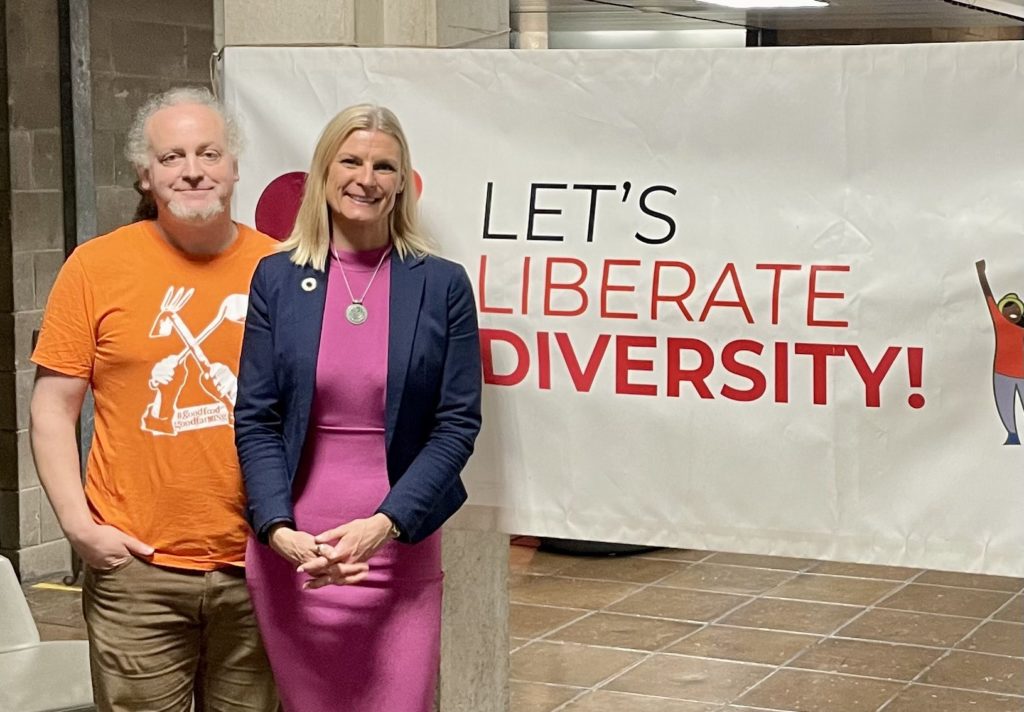
Bradley also honed in on the need for organic seed to match the rapid growth in the organic sector in Ireland – both current and planned.
Dublin City Councillor Caroline Conroy, who was Lord Mayor when Dublin signed the Milan Urban Food Policy Pact, joined the event to to discuss the role of local authorities in enhancing Cultivated Biodiversity through food policy.
Meanwhile dozens of practitioners, researchers, advocates and organisations came together to discuss new GMOs, agroecology, patents, culinary breeding, open-source seeds, diversity, and a range of both policy and practical topics.
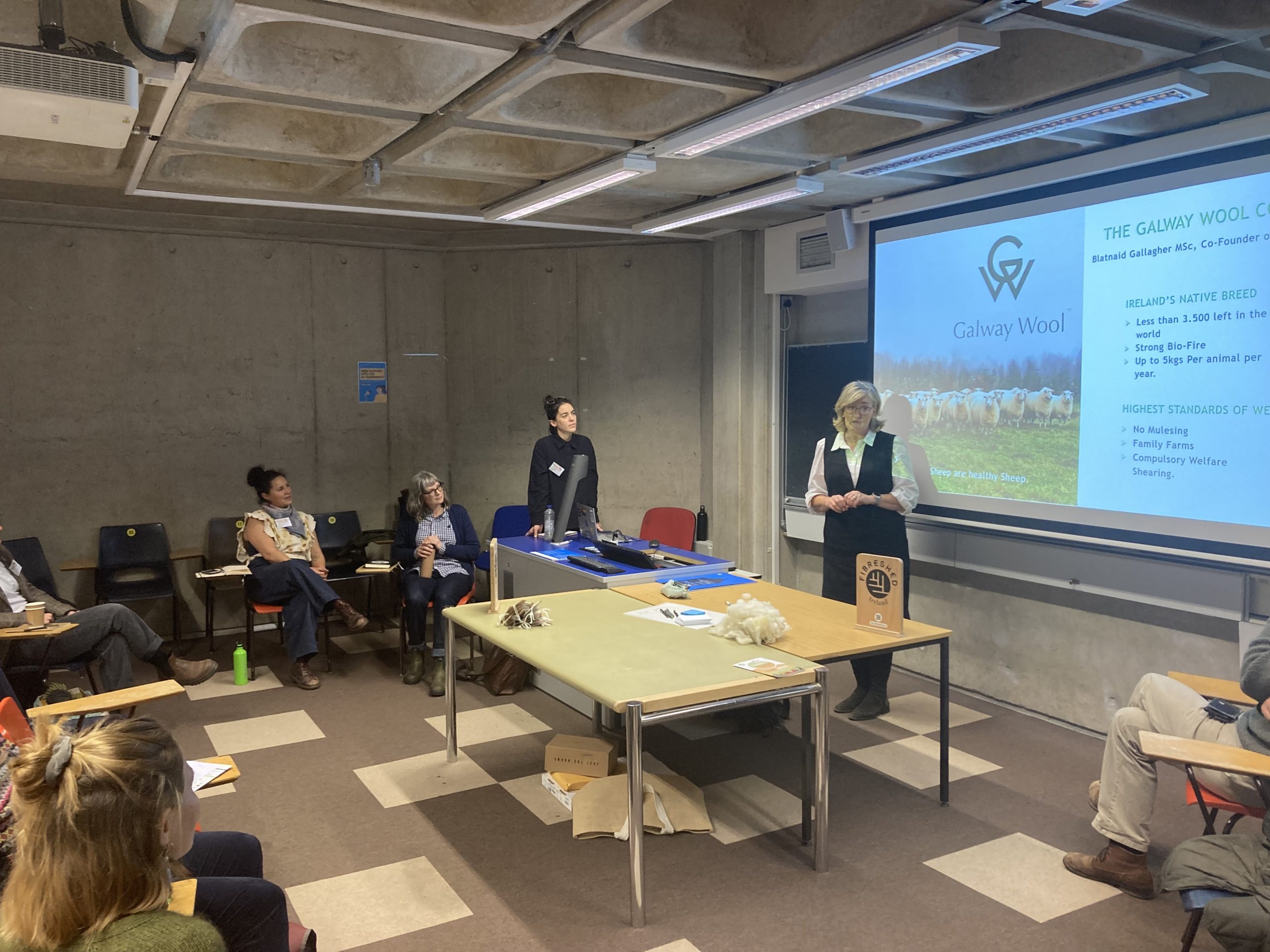
Seeds4All’s Adele Pautrat presented on agrobiodiversity for rural regeneration, in this case supporting the emergence of a social cooperative for Irish-grown textiles. This featured Adèle Pautrat (ARC2020, Seeds4All) Tristan Lienhard (AppleOak FibreWorks) Malú Colorín and Jessica Leonard (FibreShed Ireland), Blatnaid Gallagher (the Galway Wool Co-op)
Adèle Pautrat, Seeds4All co-ordinator, led a workshop on “Agro-biodiversity for Rural Regeneration” together with Malú Colorín and Jessica Leonard of Fibreshed, Tristan Lienhard of AppleOak Fibreworks, Blatnaid Gallagher of the Galway Wool Co-op and Kate Carmody of the Irish Hemp and Flax Co-operative. The partners explored the establishment of a social co-operative for Irish-grown textiles and held a collective brainstorm with workshop participants on an alternative textile production industry in Ireland. The practitioners gave insights on natural dyeing with Irish-grown dyed plant seed, a new Fibreshed Ireland partnership for reciprocal textiles, agrobiodiversity in animal fibre systems, valorising Irish wool, and the role a social cooperative could play in tying these elements together. Participants gave valuable inputs on possible paths the model could take in relation to governance, funding, services and social goals. There is tangible energy in this collaboration and it will be interesting to see what happens next.
It built on work Seeds4All has done already in Ireland as documented on both the ARC and Seeds4all websites Part 2 and Part 3)
Irish Tour part 1 – Agrobiodiversity as a Key Driver for Rural Revolution
EU Dimension – Seed Regulations and New GMOs
A strong focus was placed on EU attempts to introduce a unified seed market regulation, and on the attempts to introduce new GMOs.
Katherine Dolan of Arche Noah spoke to ARC about the core issues the Austrian organisation have with the proposal. (Listen below)
The Commission has proposed rules for industrial seed production and is proposing to apply them to small seed producers, and also, to an extent, to conservation initiatives, they have tried to create a specific regime for conservation initiatives, but they haven’t understood the reality of how our work is conducted. It will really restrict what we are able to do in in the future. Also for small producers, the bureaucratic burdens that will come, which will be binding in every state in the EU, are significantly higher so we have to make clear that we have to create freedom for conservation work. We have to be able to transfer our seeds, and to allow small local producers to produce diversity for farmers and gardeners.”
Dolan emphasised that “conservation work isn’t a seed market,” yet the Commission is attempting to create rules exclusively for marketing: “conservation isn’t about marketing its about transfering for conservation purposes, to enable sustainable use. We should not be effected by these seed rules created for industry – we should be outside this system, as is already the case in many member states.”
Claire Robinson of GM Watch outlined the Commission’s proposal to deregulate neo GMOs (also known as NGTs) – and what to do about it; while Blanche Magarinos-Rey of Artemisia underscored the importance of asking MEPs and ministers to preserve GMO labelling for ALL GMOs, including new ones.
The European Coordination Let’s Liberate Diversity (EC-LLD!) is an international nonprofit organization dedicated to bringing back diversity in the food system through the dynamic management of plant genetic resources for food and agriculture. The Coordination boasts 20 members with a network of 170 national organizations operating across 19 European countries with a membership base exceeding 35,000.
Irish Seed Savers Association is an environmental organization and social enterprise. The organizations mission is to conserve, protect and utilize Ireland’s diverse genetic food crop heritage, safeguarding food crop biodiversity for present and future generations and to educate in the sustainable and ethical use of these precious resources. Since its establishment in 1991, the organization has been at the forefront of seed and Irish heritage apple tree conservation.
More on seeds
Adapting Agricultural Practices to Climate Change – Seeds, Beans and Lessons from the Ground Up
EU Seed Law Reform and New Genetic Engineering – Double Attack on our Seeds



